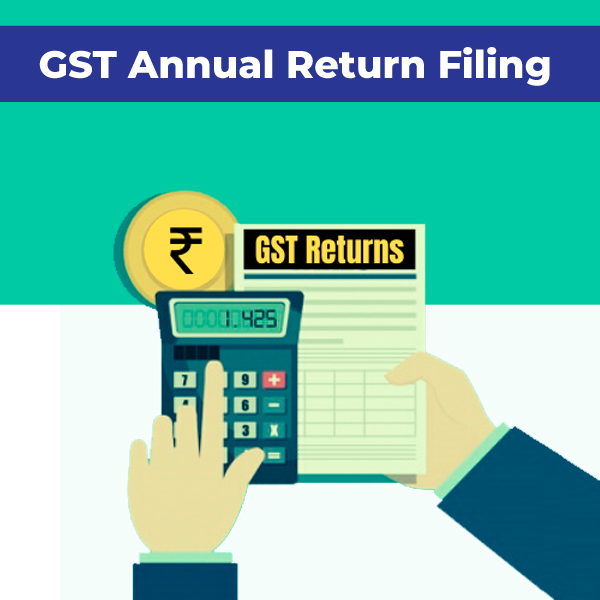Income Tax Filing
Return Type | Applicability |
ITR-1 form can be used by Individuals who have less than Rs.50 Lakhs of annual income earned by way of salary or pension and have one house property only. | |
ITR-2 form must be filed by individuals who are NRIs, Directors of Companies, shareholders of private companies or having capital gains income, income from foreign sources, two or more house property, income of more than Rs.50 lakhs. | |
ITR-3 form must be filed by individuals who are professionals or persons who are operating a proprietorship business in India. | |
ITR-4 form can be filed by taxpayers enrolled under the presumptive taxation scheme. To be enrolled for the scheme, the taxpayer must have less than Rs.2 crores of business income or less than Rs.50 lakhs of professional income. | |
ITR-5 form must be filed by partnership firms, LLPs, associations and body of individuals to report their income and computation of tax. | |
ITR-6 form must be filed by companies registered in India. | |
ITR-7 form must be filed by entities claiming exemption as charitable/religions trust, political parties, scientific research insitutions and colleges or universities. |
Its is mandatory for individuals, NRIs, partnership firms, LLPs, companies and Trust to file income tax returns each year. Individuals and NRIs are required to file income tax return, if their income exceeds Rs.2.5 lakhs per annum. Proprietorship firms and partnership firms are required income tax return – irrespective of amount of income or loss. All companies and LLPs are mandatorily required to file income tax return, irrespective of turnover or profit. IndiaBizFiling provides income tax efiling services with dedicated Tax Expert support. Upload your Form-16, sit back and relax. Our experts will file your income tax return and provide you the acknowledgement within 1 – 2 business days.
Penalty for Late Filing Income Tax Return
Taxpayers who do not file their income tax return on time are subject to penalty and charged an interest on the late payment of income tax. Also, the penalty for late filing income tax return on time has been increased recently. The penalty for late filing income tax return is now as follows:
- Late Filing between 1st August and 31st December – Rs.5000
- Late Filing After 31st December – Rs.10,000
- Penalty if taxable income is less than Rs.5 lakhs – Rs.1000
Income Tax Return Due Date
The due date for income tax return filing is 31st July of every year for individual taxpayers. The due date for income tax return filing for companies and taxpayer requiring tax audit is 30th September. Section 44AD of the Income Tax Act deals with tax audit under Income Tax Act.
Business
In case of a business, tax audit would be required if the total sales turnover or gross receipts in the business exceeds Rs.1 crore in any previous year.
Professional
In case of a profession or professional, tax audit would be required if gross receipts in the profession exceeds Rs.50 lakhs in any of the previous year.
Presumptive Taxation Scheme
If a person is enrolled under the presumptive taxation scheme under section 44AD? and total sales or turnover is more than Rs. 2 crores, then tax audit would be required.
Penalty for late filing income tax return has been increased to Rs.5000 for returns filed between 1st August and 31st December.
Tax audit is mandatory for most businesses having a turnover of more than Rs.1 crore and professionals having more than Rs.50 lakhs income.
ITR-1 is the most widely used income tax form in India. ITR-1 is filed by individuals whose source of income is limited to salary and one house property.
Top Income Tax Deductions for year by 2019
Section 80C Deduction
Income tax deduction of upto Rs.1.5 lakhs can be claimed on amount paid or deposited in PF, PPF, LIC premium paid, National Savings Certificate, ULIP, principal part of repayment of housing loan, tuition fees paid for children, term deposit in bank, deposit in Senior Citizen savings scheme and more.
Section 80D Deduction
Section 80D deduction can be claimed by individuals and HUF for payments to medical insurance paid by cheque under GI scheme. Also fees of upto Rs.5000 paid for preventive health checkup can be claimed as income tax deduction under Section 80D.
Section 80EE Deduction
Additional deduction under Section 80EE can be claimed on interest on housing loan paid through EMI by the assessee. The maximum deduction allowed under Section 80EE is Rs.1 lakh. The deduction can be availed on the first home loan, the amount of loan does not exceed Rs.35 lakhs and the property value does not exceed Rs.50 lakhs.
Section 80E Deduction
Section 80E deduction can be claimed by individuals for repayment of interest on loan taken in respect of higher deduction. The amount of interest paid can be claimed as a deduction under Section 80E. The maximum period for which this deduction can be availed is 8 years starting from repayment of loan or till the entire loan is repaid, whichever is earlier.
Section 80G Deduction
Section 80G deduction can be claimed on donations to certain funds, charitable institutes within the ceiling amount of 10% of the Gross Taxable Income. The amount of deduction available would depend on the exemption enjoyed by the fund. Section 80G deduction cannot be claimed for cash deductions of more than Rs.2000.
Income Tax Deductions
Various income tax deductions are available for taxpayers to save on taxes payable. You can use the income tax calculator or read the article below to know more about income tax deductions.
Personal Tax Return Filing FAQ’s
1. When am I supposed to file my income tax returns?
Individuals, NRIs, partnership firms, LLPs, companies and Trusts are supposed to file Income Tax Returns every year.
2. Who is to file ITR-1?
ITR-1 form can be used by Individuals who have less than Rs.50 Lakhs of annual income as salary or pension and have one house property only.
3. Is there a penalty if I fail to file my Income Tax Returns?
Yes, taxpayers who do not file their Income Tax Return on time are subject to penalty and charged an interest on the late payment of income tax. The penalty for late filing has been increased recently.
4. Who is supposed to file ITR-3?
ITR-3 form must be filed by professionals or people who are operating a proprietorship business in India.
5. Why is ITR-5 filed?
ITR-5 form is filed by partnership firms, LLPs, associations and body of individuals to report their income and computation of tax.
6. Who is supposed to file ITR-2?
ITR-2 form must be filed by individuals who are NRIs, Directors of Companies, shareholders of private companies or having capital gains income, income from foreign sources, two or more house property, income of more than Rs. 50 lakh.









